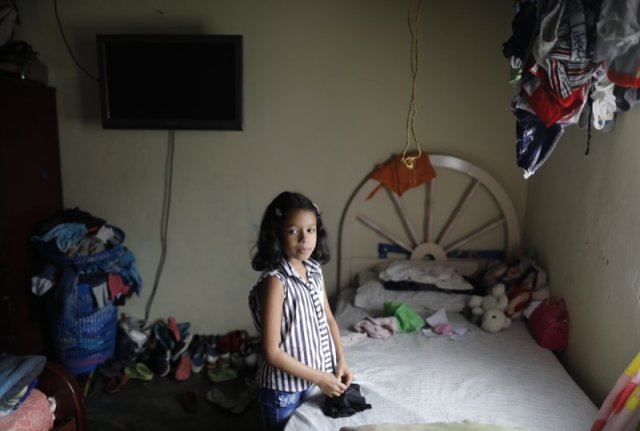
Jenashly Matos may only be 9, but she has big dreams of one day becoming a doctor and helping people. The challenges she faces growing up today in a poor barrio in Venezuela’s capital amid a historic pandemic are also hefty.
By AP – The Associated Press – Scott Smith
Nov 09, 2020
The novel coronavirus has shut down schools in Venezuela and throughout Latin America. To keep from falling behind, she’s started attending a neighborhood tutorial for a couple hours each morning to get help with assignments her teacher sends home.
“If I’m not learning, I feel like I’m nobody in life,” she said, while studying the parts of speech. “That’s why I come here.”
The pandemic has left millions of students falling behind in the world’s most unequal region, a study released Monday finds. Pandemic lockdowns, teacher shortages and electricity outages are forcing many Venezuelan students to advance their education outside the traditional brick and mortar school setting.
Venezuela is facing setbacks along with countries such as Mexico, Jamaica, Bolivia and Honduras.
The U.N. children’s agency UNICEF says that the COVID-19 has deprived 97% of children in Latin America and the Caribbean of their normal schooling over seven months since the continent’s first COVID-19 cases were discovered. Distance learning is especially challenging for many families that don’t have reliable tools, like the internet, computers, TV and radio, further dividing the rich and poor.
While many schools in Africa, Asia and Europe are gradually reopening, the doors to classrooms remain shut in half of the 36 countries in Latin American and the Caribbean. Roughly 137 million children are missing out on education, with no end in sight to the pandemic.
More than 3 million students may never return to school, especially threatening the future of the most vulnerable — girls, disabled youths, migrants and indigenous children, the report warns.
A “generational catastrophe” looms as students miss out on learning at a critical stage in development, as well as vital nutrition from school meals, while girls are exposed to violence at home and risk early pregnancy.
“This prolonged absence from a face-to-face education will have serious implications for the future and development of all these children and adolescents,” said Vincenzo Placco, a Panama-based education specialist at the UNICEF Regional Office for Latin America and the Caribbean.
“Let’s not forget that Latin America and the Caribbean, like other regions of the world, were already facing an educational crisis,” he added.
Jenashly, who’s determined not to have her dreams denied, crowded around a table with several other children at a neighbor’s home in a hilltop barrio in Caracas. She scribbled into a folder in front of her, asking for help from the tutor.
A Venezuelan charity, Feed the Solidarity, was already preparing meals for thousands of hungry children in the country’s poorest neighborhoods before the pandemic. The demand for meals climbed, and organizers also started neighborhood study groups, like this one, to help stem the educational decline.
…
Read More: AP – The Associated Press – UN: Pandemic threatens Latin America’s next generation
…

